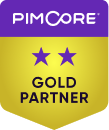Streamline Your Data Processes - Start a project!
Get customized solutions for your business - Try Our Services Today!
Streamline Your eCommerce Operations - Try Our Services Today!
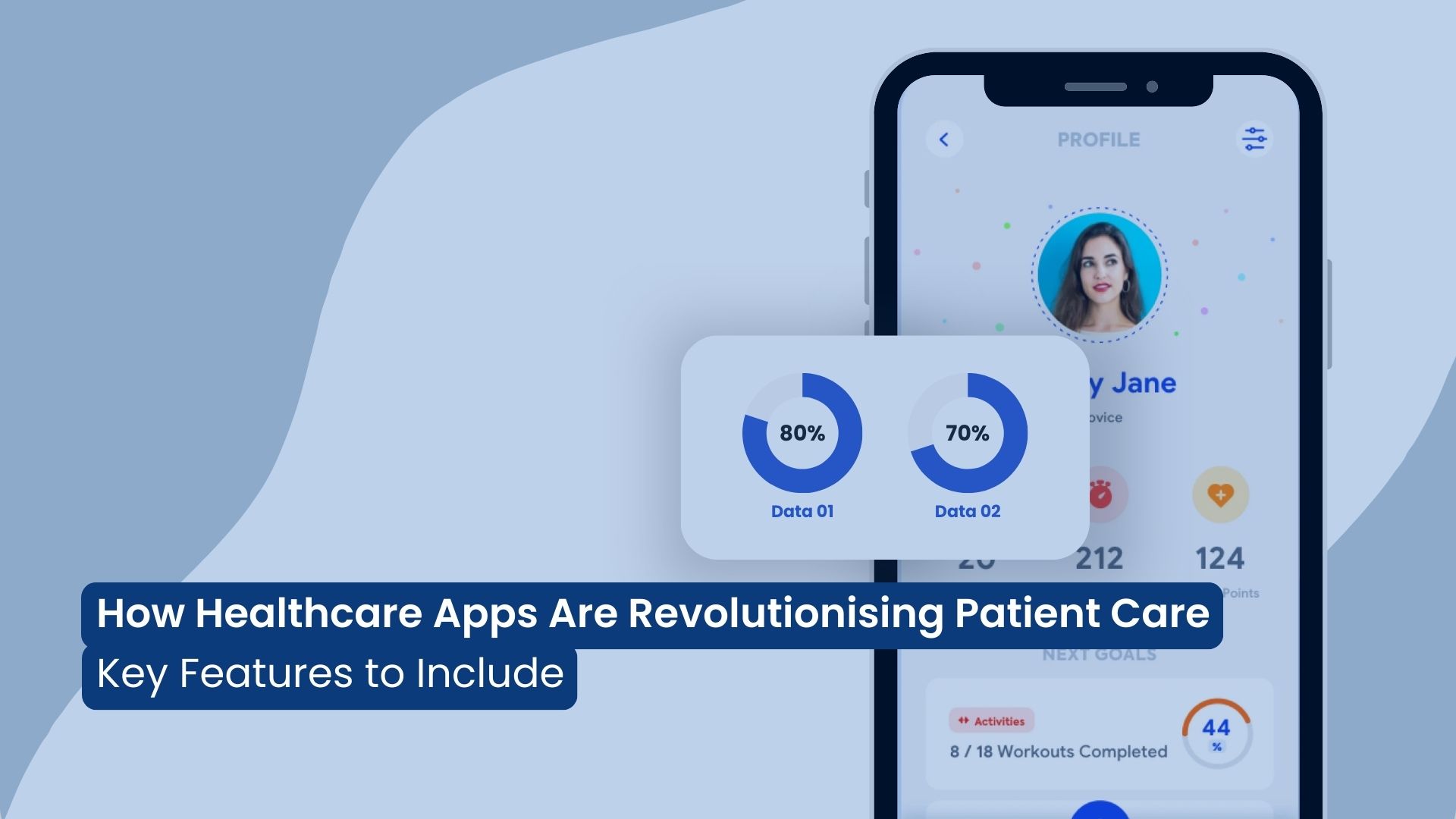
How Healthcare Apps Are Revolutionising Patient Care: Key Features to Include
Suppose a patient wakes up feeling not well, opens up their phone app, books a virtual appointment for later that morning, fills out the pre-visit forms, video chats with their doctor, receives a diagnosis, and has meds delivered right to their door—all without stepping out. This is exactly the convenience and comprehensive care that healthcare mobile applications are making possible today. Waiting rooms, paper charts, and telephone-tag with medical offices are becoming a thing of the past.
The global mHealth market from the year 2023 was pegged at a huge $32.42 billion, growing at an impressive rate of 14.9% annually, between 2024 to 2030, as reported by Grand View Research. However, these numbers tell only one aspect of the story. Behind this explosive growth lies something more fundamental, which is healthcare's most persistent challenge.
How do we make quality care accessible to everyone?
How can we keep patients engaged in their health journey?
How might we streamline fragmented communication between providers and patients?
Through healthcare mobile app development, smartphones are transforming into powerful health management hubs right inside our pockets, thus making healthcare experiences and delivery dramatically better.
The Transformative Impact of Healthcare Apps on Patient Care
Improving Access to Healthcare Services
The contribution of mHealth applications lies in their ability to democratize access to healthcare services. These apps bridge the essential gaps of care delivery for patients residing in rural or under served areas.
Telemedicine features inside healthcare mobile apps have witnessed a massive rise in their use, with McKinsey reporting that telehealth utilization stabilised at levels 38 times higher than pre-pandemic levels. Virtual consultation through iOS apps and Android apps creates no hurdles in terms of geographical constraints and reduces the need for patients and doctors to meet in person for routine check-ups, follow-ups, and non-emergency consultations
Enhancing Patient Engagement and Empowerment
Modern healthcare demands active patient participation, and mobile technology is the perfect enabler. Through intuitive mHealth applications, patients can:
-
Track vital health metrics in real-time
-
Receive personalised health recommendations
-
Access educational resources about their conditions
-
Set medication reminders and health goals
Research published in the Journal of Medical Internet Research has consistently shown that patients using health management apps experience improved adherence to treatment plans compared to non-users. This improved engagement is linked to better health outcomes and increased patient satisfaction.
Streamlining Communication Between Patients and Providers
Effective communication remains primary in quality healthcare. Healthcare mobile app development has revolutionised this aspect by creating secure channels for patients and providers to exchange information seamlessly.
Research indicates that over three‑quarters of patients who use in‑app messaging features in healthcare applications report improved communication with their healthcare team. These tools eliminate delays associated with phone tag, reduce unnecessary calls, and automatically create a secure, time‑stamped record of all interactions, helping both patients and providers stay informed and aligned on care plans.
Essential Features for Effective Healthcare Mobile Apps
1. Telemedicine and Virtual Consultation Capabilities
Source - savvycom
The pandemic has boosted the adoption of telemedicine. However, the convenience makes sure it lives on. The present definition of mHealth applications must include various virtual care features such as -
-
High-definition video consultations
-
Secure messaging with healthcare providers
-
Digital intake forms and pre-visit questionnaires
-
Integration with wearable devices for real-time data sharing
Whether developed as ios or Android apps, these platforms must deliver seamless experiences across devices to accommodate diverse user preferences.
2. Secure Patient Portals and Electronic Health Records Access
A secure patient portal, providing access to electronic health records, is the backbone of any comprehensive healthcare mobile app. Patient portals now change the patient experience with their medical information by:
-
Having their entire medical history at their fingertips
-
Viewing lab and test results with explanations
-
Treatment plans and care directions
-
Prescription information and refill requests
For healthcare organisations implementing these solutions, working with a reliable custom app development company would ensure the right integration with the existing systems while meeting stringent security standards.
3. Medication Management and Adherence Tools
Source - savvycom
The Centres for Disease Control and Prevention said that non-adherence to medication costs healthcare in America between $100-300 billion annually. Healthcare mobile apps tackle this problem with advanced medication management features:
-
Customizable medication reminders and schedules
-
Prescription tracking and refill alerts
-
Drug interaction warnings
-
Medication effectiveness logging
These tools have indeed made a significant difference, as evidenced by a study where medication reminder apps improved adherence among patients with chronic illnesses.
4. Remote Monitoring Integration
mHealth applications attain their true potential when complemented with remote monitoring capabilities. These apps are integrated with the wearables and health monitoring devices, which establish a continuous stream of data. This data is used for:
-
Early detection of deterioration of health
-
Decreasing the re-admissions to the hospital
-
Adjusting treatment based on the individual needs
-
Preventive interventions before critical situations develop
According to Research and Markets, the global remote patient monitoring market is projected to reach $175.2 billion by 2027, underscoring the growing importance of this feature in healthcare mobile app development.
5. Personalised Health Education and Resources
Patients who are informed make better health choices. Efficient healthcare mobile apps provide contextual health education resources that may include:
-
Condition-specific information and management tips
-
Self-care procedure tutorials
-
Nutritional advice and wellness resources
-
Symptom checkers with AI recommendations
Such resources have to be tailored and adjusted to individual patient profiles, considering factors such as health literacy levels, cultural backgrounds, any specific condition, etc.
Implementation Considerations for Healthcare App Development
Developing effective healthcare apps demands specialisation. The mobile app development costs is a little difficult to estimate as the complexity, features, and compliance requirements are changing. Basic healthcare apps may cost $50,000, while full-fledged platforms paired with full EHR integration and advanced functionality may cost $300,000 plus.
When looking at development approaches, an organisation needs to consider whether to pursue Native app development for performance & user experience, or cross-platform development for quick market entry.
Additionally, Healthcare app development has regulatory requirements too, like HIPAA in the United States and GDPR in Europe. Working with an expert mobile application development company, ensures all regulations are met while delivering innovative solutions.
The Future of Healthcare Mobile Applications
As we look ahead, several emerging technologies promise to further enhance healthcare mobile apps:
-
Artificial intelligence for predictive analytics and personalised care recommendations
-
Blockchain for secure health data exchange and improved interoperability
-
Augmented reality for surgical planning and medical education
-
Voice interfaces for hands-free operation in clinical settings
These advancements will continue to transform patient care, making healthcare more accessible, efficient, and patient-centred than ever before.
Ready to Transform Patient Care with a Custom Healthcare App?
The revolution in patient care through mobile technology is just beginning. Organisations that embrace these innovations now will position themselves at the forefront of healthcare delivery excellence. Whether you're looking to develop a full patient engagement platform or a specialised mHealth application, then choosing the right custom app development company for you is a key to success.
Syncrasy Technologies has expertise in crafting mobile solutions that really change patient way of take care. Connect with our team today to discuss how our mobile app development services can help your organisation deliver exceptional care experiences.
Categories
- Digital Asset Management (DAM)
- Artificial Intelligence (AI)
- Product Information Management (PIM)
- E-commerce
- Master Data Management (MDM)
- Digital Experience Management
- Customer Data Platform
- Data Management Platform
- Recruitment
- Covid-19
- Digital Workspace
- Digital Experience Portal (DXP)
- Omnichannel Experience
- Pimcore
- Framework Comparison
- Software Development
- Learning Management Solution (LMS)
- CRM System
- Sales Portal
- Salesforce
- Blockchain Development
- App Development
- Technology
Similar Blogs
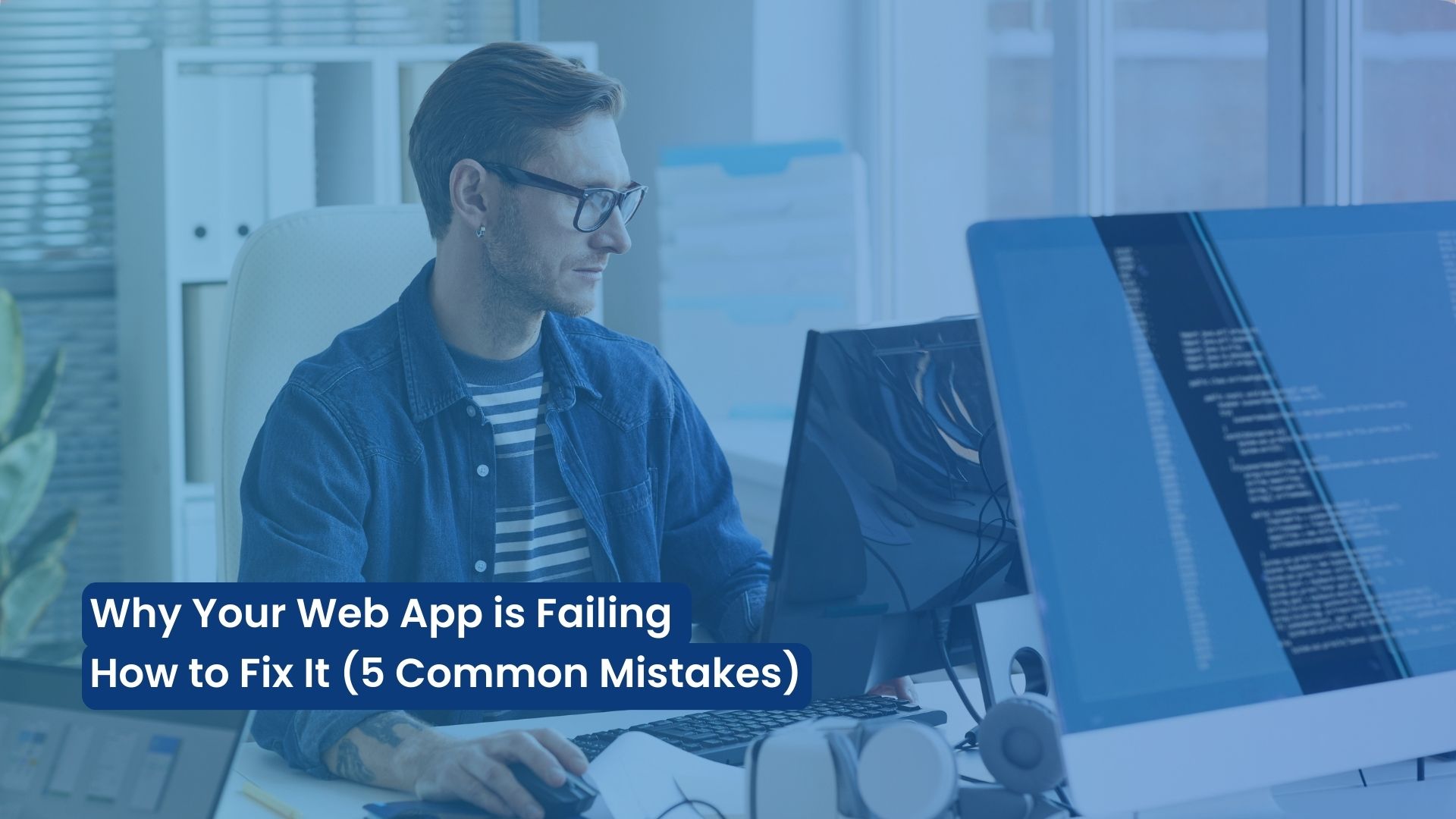
Why Your Web App is Failing & How to Fix It (5 Common Mistakes)
Your business success depends greatly on the quality of your web application. Despite significant in...
Read More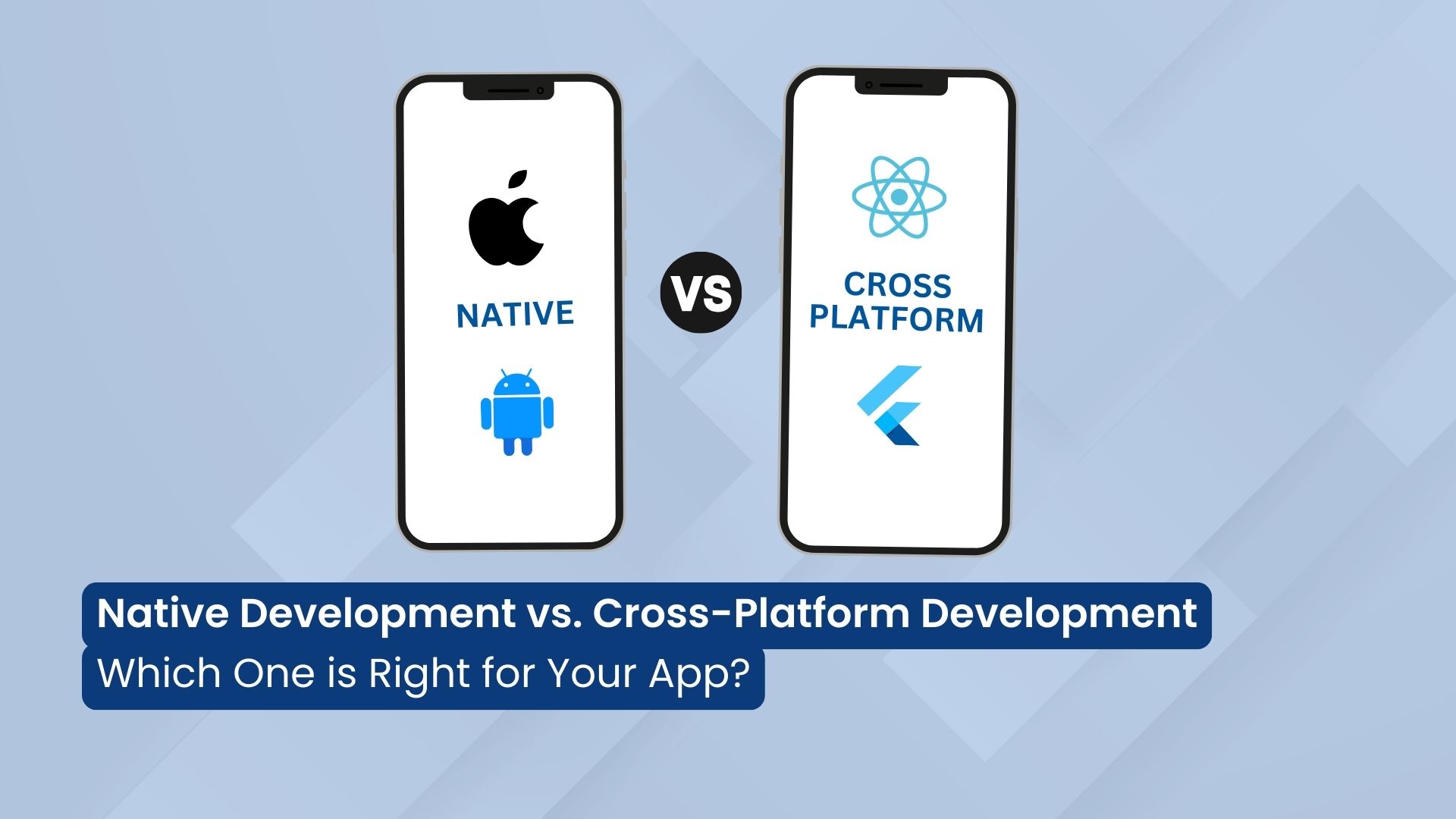
Native Development vs. Cross-Platform Development: Which One is Right for Your App?
Before mobile app development, organisations must decide - Whether they Should pursue native develop...
Read More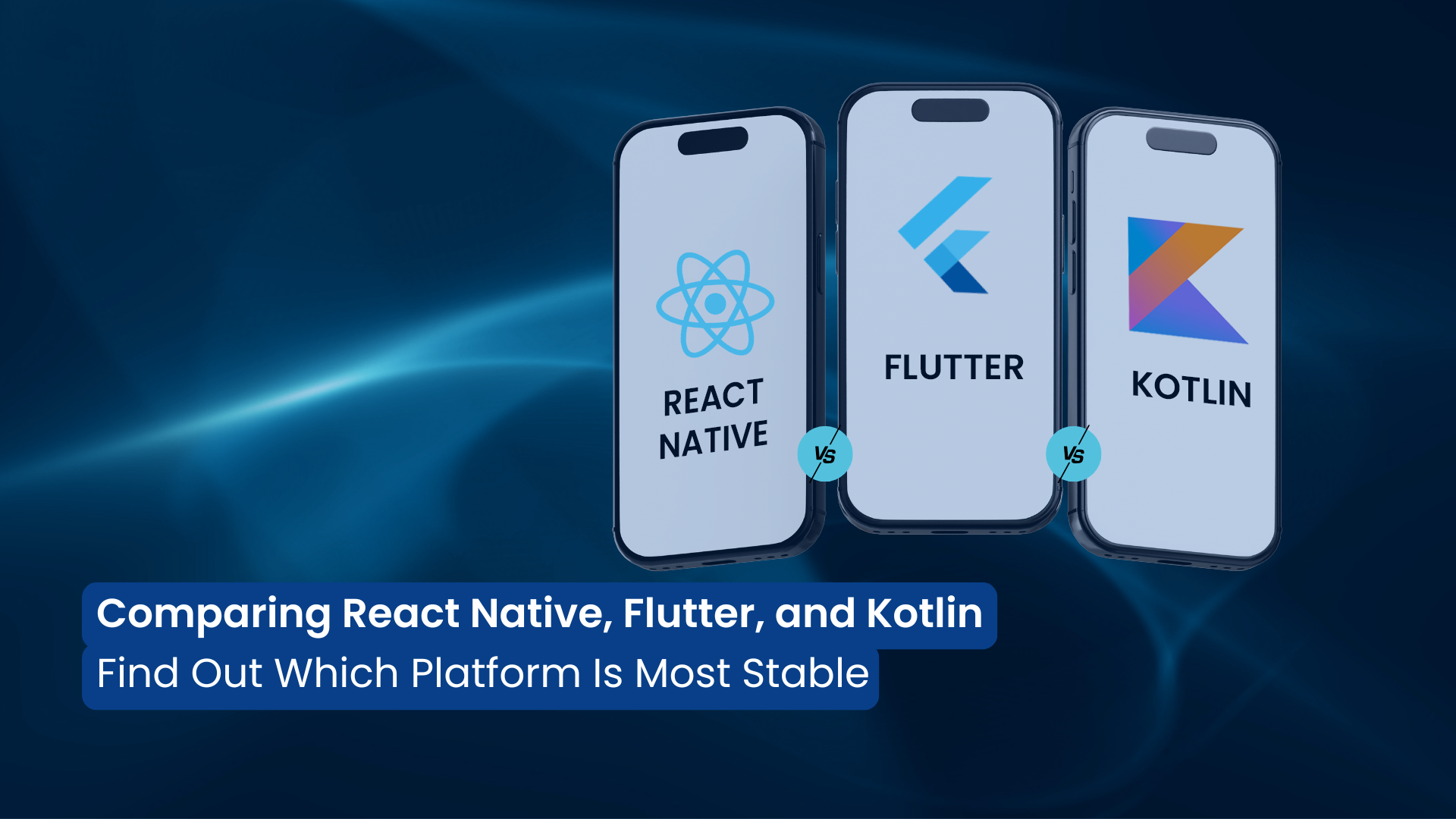
Comparing React Native, Flutter, & Kotlin: Which One Wins in 2025?
Three frameworks are currently ruling in the mobile development sector - React Native, Flutter, and ...
Read More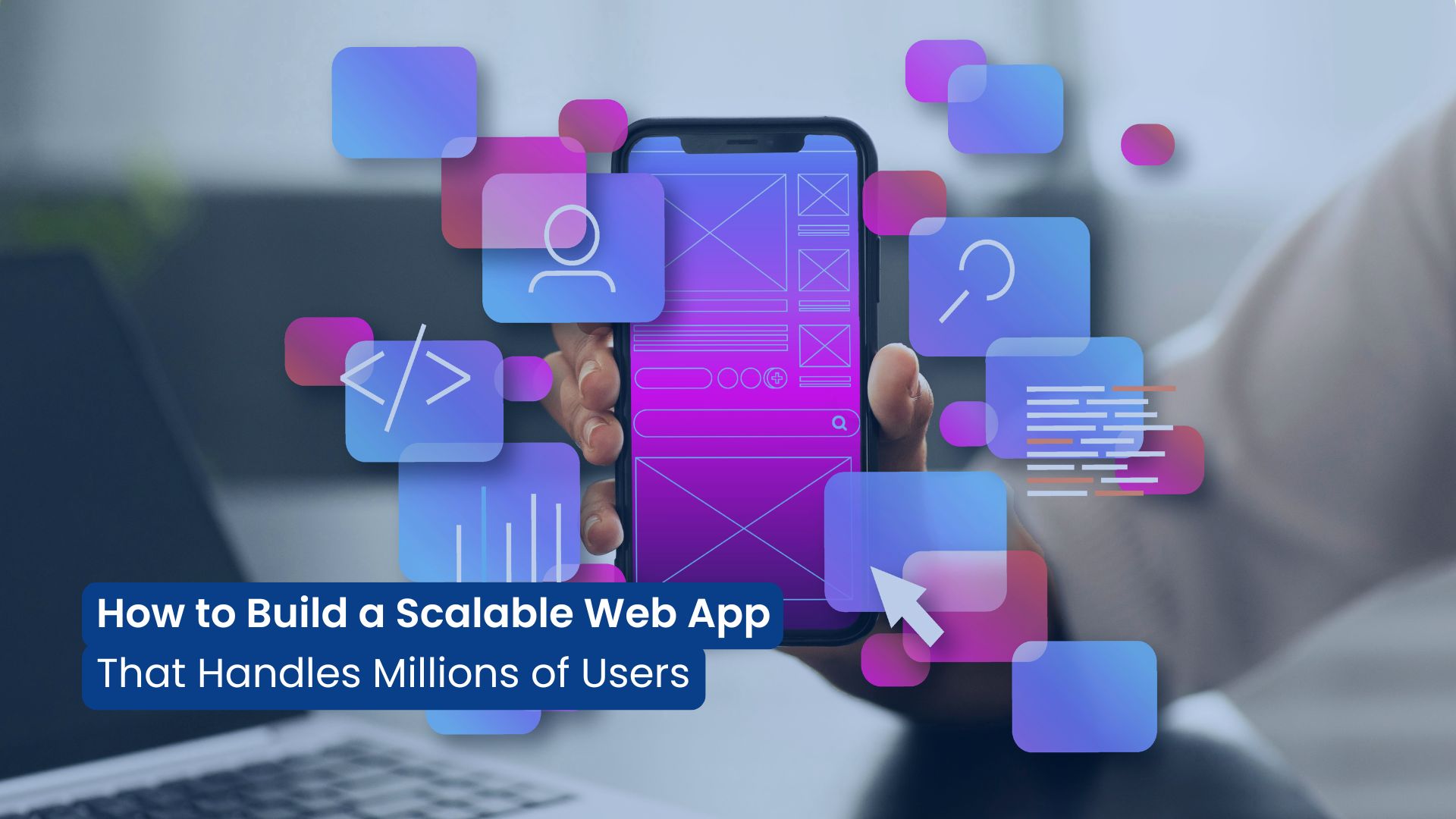
How to Build a Scalable Web App That Handles Millions of Users
Imagine your web application suddenly going viral. The trickle of daily users quickly becomes a stre...
Read More